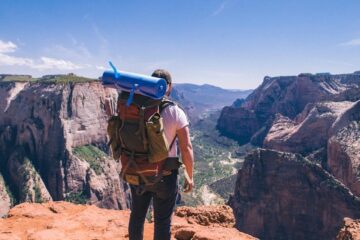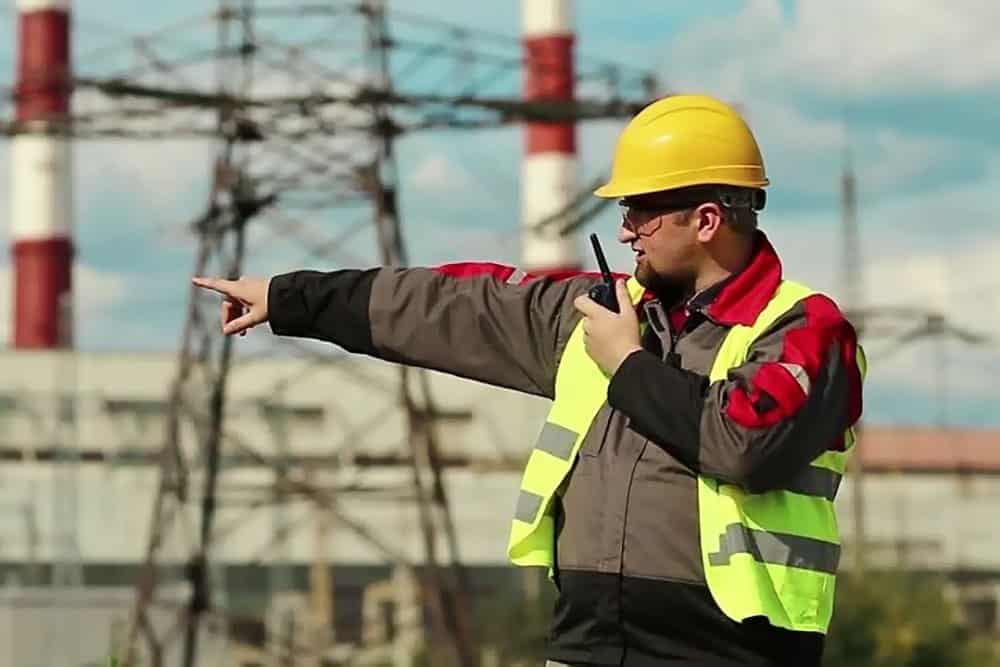Now that 2020 is in the rearview one thing seems abundantly clear: everyone owes preppers a great big apology. We can debate ad nauseum the exact forces that converged to send civilization into nice, tidy downward spiral, starting with the Middle Kingdom’s latest gift to the world. But the widely ridiculed prepper notion that the feces could hit the fan at any moment was validated beyond even the most ardent survivalist’s wildest dreams.
So where do we go from here?
Now that we have irrefutable proof that the future belongs to the prepared, it’s probably a good idea to dust off Ye Olde Survival Guide and update our list of basic prepping tips. Some of the ones we’re about to list are tried and true and need no introduction. Others are based on recent events, the fact that the digital realm has revealed itself as naught but a lapdog for The Man, and a few new things we picked up along the way. So without further ado, here are 18 basic prepping tips for 2021.
1) Practice Living Below Your Means
This time around we were relatively lucky. When the lockdowns came governments were willing to just print enough money to keep most people afloat for awhile (1). But after the massive piles of debt accrued by governments in 2020 (2) you can be pretty sure that’s never going to happen again. Because if it does, money won’t be worth the paper it’s printed on. Therefore, you need to wrap your head around the idea that the next global meltdown will entail you having to tighten your belt.
The best way to prepare for that is to practice living below your means for weeks or even months at a time now. Put away the credit cards. Don’t eat out as often. Buy less expensive cuts of meat. Cancel your health club membership. Since it’s likely that next time around it’s going to be every man for himself, it could pay handsome dividends if you already have experience with belt tightening. That way it won’t come as such a shock to the system. Of course, another upside is that you’ll save some money in the here and now.
2) Diversify Your Food Stocks
For decades we’ve been told that canned goods will get us through the apocalypse. That might be true if you have a well-appointed bunker to ride out said apocalypse in. But not all apocalai will necessarily unfold in tidy, predictable ways. You may not have a well-appointed bunker. In addition, you may need to abandon your home to save yourself and your loved ones from marauding hordes scavenging for ever more toilet paper. Then what do you do?
You can’t carry 1,000 pounds of canned goods with you. Even if you have access to a vehicle with a full fuel tank all that weight is going to destroy your gas mileage. The best idea is to diversify. Keep a large stock of canned goods on hand, because you never know what shape said apocalypse is going to take. But make sure you have plenty of lightweight and portable freeze dried food and dehydrated food as well. Also make sure you have plenty of water purification pills.
3) Store Water
You’ll find conflicting information on how much water the average person needs every day (3). But the consensus seems to come in somewhere around 3 quarts, give or take. In a very real way water is more important than food, at least in the short term. If you’ve got a few extra pounds on you you can go a few days without eating and it might even be good for you. But, while there is some evidence that people adapt to the amount of water that’s present (4), there is no denying that more than a few days with no water is big trouble.
Therefore, it’s important to store water, and the more the better. Have some in large containers and some in smaller, more portable containers in case you have to bug out. Also, don’t forget to have plenty of water purification pills on hand, along with the kind of water filters hikers and hunters use that enable them to drink from iffy water sources.
4) Learn a Second Language
Nearly twice as many people in the Western Hemisphere speak Spanish and Portugeuse as speak English (5). If you didn’t know that before you know it now. In the event society becomes unzipped it might help to be able to communicate with these people, or at least understand what they’re saying.
Looking at it another way; chances are when things break down, regardless of the reason, it will help to have some diplomatic skills. And diplomacy is dependent on the ability to communicate. So learn a second language or two. If you have school age kids make sure they’re taking language lessons too. After all, they’re the ones that are going to have to navigate the future mess we leave behind for them.
5) Learn How Cars Work
Most people spend large portions of their lives tucked away inside motor vehicles without any clue how they work. Most, these days, can’t even operate a stick. Since there is no way to predict exactly what shape the next meltdown will take it may be very handy to know how cars work, in case you ever need to do some on the spot repairs to keep your vehicle going.
While you’re at it, learn how to operate said stick shift. While there are precious few manual transmission cars around these days, you may need to commandeer a non-traditional means of transport, like a flatbed or semi-truck, that has a manual transmission. The more transportation options you give yourself the greater your chances of surviving even a catastrophic societal meltdown.
6) Buy a Gun
Better yet, buy two, or three or four. And do it now before it gets harder to. We all hope that things never get to the point that we have to reach for a firearm. But if years past has taught us anything it’s that you never know when a horde of peaceful demonstrators are going to try and burn down your business or attack you while you’re eating out.
But don’t just stockpile weapons. Learn how to use them properly, how to store them safely (6) and how to keep them in good working order. And remember too, even the slickest AR15 or Glock won’t be much good if you don’t have any ammo.
7) Stockpile Meds
Diabetics and others who rely on certain medications will need to endure when the SHTF just like everyone else. If you are reliant on a certain type of medication it’s in your interest to make sure you have enough to tide you over for a while should medical supply lines be disrupted, or you are forced to beat a hasty retreat to your cabin in the woods.
But it’s not just specialty medications that are important. It’s equally important that you have a well-stocked emergency first aid kit on hand that includes everything from aspirin to a variety of bandages, to antibiotics, peroxide, medical adhesive tape, antiseptic wipes, a thermometer and other essential items (7). You should keep a version of this kit in your car at all times in case you are away from home when trouble descends.
8) Learn How to Sew
Your grandma could probably create a patch for your jeans that would last for years using only a random piece of cloth and a needle and thread. Can you? Should things seriously deteriorate it’s a safe bet you won’t be doing a lot of clothes shopping, at least for a while. So knowing how to repair the clothes you have could pay handsome dividends.
Sewing is one of those skills that was commonly taught, even in schools, until about 50 years ago. Today, it is an all but forgotten artform. Still, knowing how to handle a needle and thread (8)(9), and keeping plenty of both on hand just in case, is a smart idea that could wind up making the difference between being comfortable and being miserable. You can also use your sewing equipment and knowledge to repair a tent or stitch up a wound (10).
9) Create Your Own Survival Guide
You know how we mentioned Ye Olde Survival Guide in the opening? Well, we’re not joking. Having a guide on hand that is chock full of useful information can make a world of difference when the world is falling apart. Creating your own is easy. All you need to do is print out information on as many important topics as you see fit. These can include how to treat water, how to identify edible plants in the wild, a hardtack recipe, how to fashion a makeshift shelter and more.
Print these items out and then put them together in a binder. You’ll want to have a couple of copies of your survival guide so make a couple of copies of each printout, and make sure to either laminate them or slip them into clear plastic sleeves so they’ll survive getting wet. Then keep one copy in the car and another in your house with your food stores and other emergency items.
10) Exercise
If things really tank you’re going to find yourself back in the 19th century. The problem is the average person in the 19th century was in better shape than the average person today (11). They didn’t live as long because they didn’t have the sophisticated disease treatments we have today, but for practical purposes, they were more physically fit than the average person now. They had to be. Life was more physically demanding then. And it will be again if the SHTF.
Are you ready to carry 50 pounds of supplies on your back day after day? Are you physically ready to defend yourself if need be? What if you need to make a shelter and sleep outside? Are you physically and mentally ready to do that? You’re not going to last long in the brave new world if you’re out of shape. So ditch the fast food and start exercising.
11) Keep Your Plans to Yourself
Sharing and caring about your fellow man is all very well and good. But when things take a turn for the worse survival will depend on your ability to be at least a little bit selfish. Essentially, you need to take the same attitude to prepping that you take with your finances. You don’t show your friends and neighbors your bank statements, pay stubs and other details of your financial situation, and you shouldn’t share details of your prepping with them either.
The reasons are the same in both cases. If you are doing well financially and you share details of that with others, low lifes, scammers and hangers on are going to come out of the woodwork and try to take a piece of your pie. Same with prepping. If you show everyone your food stores, weapons cache, and emergency water supplies and you tell them where your backwoods retreat is, you can be sure that if the SHTF they’re going to come for what you have.
12) Start Unplugging From the Grid
If you suspect that 2020 was really about governments using the flu as an excuse to herd us all into a digital net, you’re not alone. With AI playing an ever larger behind the scenes role in our lives (12) and many governments looking at ways to integrate AI with “contact tracing”, (i.e. surveillance without a warrant), ditching the smartphone may well be the smart thing to do, before we wind up with an American version of the Chinese “social credit system” (13).
The fact is, the apocalypse could take many forms, including that of a digital prison. The enlightened prepper guards his or her rights jealously, which means he or she does not aid in his or her own ostracism at the hands of Facebook, Twitter, or Google etc. Ergo, unplugging from this increasingly draconian grid is an increasingly attractive idea.
13) Develop a Taste for Insects
People have been eating insects a lot longer than they’ve been eating pizza or burgers. There is evidence that prehistoric humans were eating bugs as a regular part of their diet. And many traditional cultures in Africa, the Americas and Asia continue to eat insects to this day (14). There are numerous benefits to eating insects including the fact that they’re everywhere and that some of them are rich in nutrients, including all nine essential amino acids.
Should things deteriorate to the point that food supply chains break down the person with the most flexible diet is likely to survive, while those who can’t abide eating a grasshopper or ant larvae may well face starvation. If there is a downside to eating insects (other than eating insects of course), it’s that some are toxic, some accumulate toxins in their system from insecticides and such, and some people may have allergic reactions to eating certain insects.
14) Stay Flexible
You may think you know how things are going to unwind, but chances are it won’t happen that way. Therefore, flexibility needs to be baked into your preparations. Have a plan for hunkering down in place, and another for hitting the road. Keep a bug out bag in your vehicle with a minimal complement of necessary survival items just in case something happens and you can’t get home.
Have canned food and dehydrated food. Large containers of water and smaller, more portable ones. Have battery operated lights and candles, lighters and matches, a portable propane stove and a camp stove that burns wood. Have a GPS device and a traditional compass. And like we said, be flexible in what you eat, teach yourself to drive more than one kind of vehicle and get in shape.
15) Arrange a Rendezvous Location
If things fall apart quickly there’s a good chance different members of your family will be in different places when the SHTF. As such, it’s important to arrange a rendezvous point where you can meet up. Make sure you choose a place everyone knows and that you include at least 1 backup location in case the primary location is inaccessible.
Keep in mind too that communications may be down and travel difficult, so you need to make it clear that everyone needs to be patient and continue to the rendezvous point even if they have to get there on foot. You can also do a dry run or two where you send everyone a text message at a random time telling them to meet at the rendezvous point.
16) Keep Pets in Your Plans
If the SHTF you may or may not be able to continue to feed and care for any pets. If you can’t, then you will need to abandon them. That’s likely to be nearly as hard on you as it is on them (15). If you plan on keeping your pet or pets no matter what, then you will need to account for them in your preparations by stocking pet food and whatever other supplies they’ll need.
The best thing to do before you get a pet is to decide up front whether or not you’ll be sticking by them come hell or high water. Think it through. If you determine that you’ll likely have to leave them behind if things get rough then the best course of action might be not to get them in the first place. But if you decide you’re all-in then plan accordingly.
17) Expect the Unexpected
We talked earlier about the need to stay flexible, but there’s more than one kind of flexibility. It’s important to remain practically flexible, in the sense that you have batteries and candles, lighters and matches etc. But you must remain mentally flexible as well. Some preppers believe they know what’s going to happen. But this type of thinking is dangerous. It could lead to mental and emotional breakdown if (when) things don’t unfold according to your preconceived ideas.
The only thing you can be sure of is that you will need to be clear-headed and solution-oriented when things go south. The materials you stockpiled are there to facilitate whatever course of action you deem appropriate, not to facilitate one inflexible course of action. Think of yourself as an artist. The food, bandages, new skills etc are your colors. How you combine them and which ones you use will depend on what kind of picture you need to paint. And you can only determine the right kind of picture if you stay clear-minded and mentally flexible.
18) Don’t Overlook Hygiene
Stocking up on food, water and candles is important. But don’t forget to stock up on soap and toilet paper too. Sanitation is important if you are to transcend whatever difficulty descends upon you. Letting things go from a hygienic standpoint will just make you more uncomfortable and more susceptible to infections and various diseases spread by contact with unsanitary items.
Conclusion
While these basic prepping tips should help you get started in preparing for the worst, it’s important to remember to enjoy today. In fact, the near certainty that things are going to deteriorate as we move further into the 21st century may be the best reason there is for enjoying the here and now.
So don’t walk around with a sign that says “The end is nigh”, or spend your evenings lecturing your kids about how they’re not going to have lives worth living. Instead, prepare for the worst but enjoy today to the best of your ability. And who knows? Maybe, just maybe, everything will be alright and you won’t need any of this stuff.


